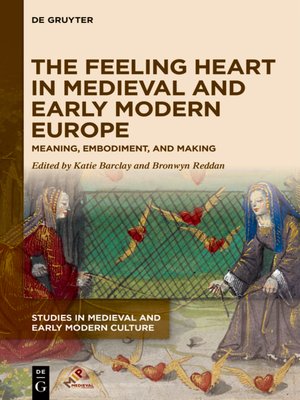The Feeling Heart in Medieval and Early Modern Europe
ebook ∣ Meaning, Embodiment, and Making · Studies in Medieval and Early Modern Culture
By Katie Barclay

Sign up to save your library
With an OverDrive account, you can save your favorite libraries for at-a-glance information about availability. Find out more about OverDrive accounts.
Find this title in Libby, the library reading app by OverDrive.



Search for a digital library with this title
Title found at these libraries:
| Library Name | Distance |
|---|---|
| Loading... |
The heart is an iconic symbol in the medieval and early modern European world. In addition to being a physical organ, it is a key conceptual device related to emotions, cognition, the self and identity, and the body. The heart is read as a metaphor for human desire and will, and situated in opposition to or alongside reason and cognition. In medieval and early modern Europe, the "feeling heart" – the heart as the site of emotion and emotional practices – informed a broad range of art, literature, music, heraldry, medical texts, and devotional and ritual practices. This multidisciplinary collection brings together art historians, literary scholars, historians, theologians, and musicologists to highlight the range of meanings attached to the symbol of the heart, the relationship between physical and metaphorical representations of the heart, and the uses of the heart in the production of identities and communities in medieval and early modern Europe.







